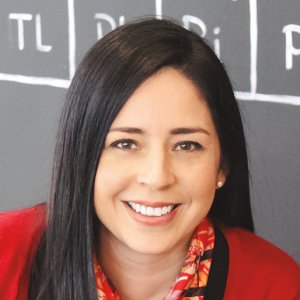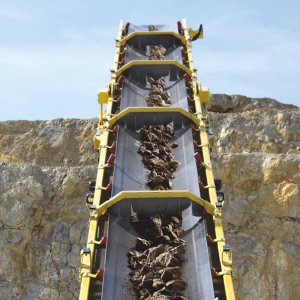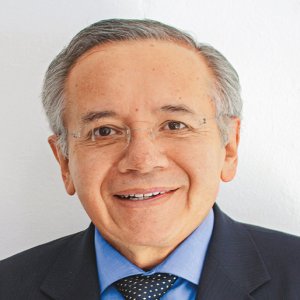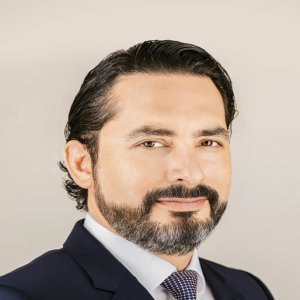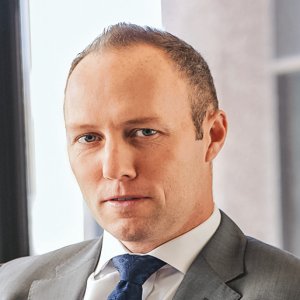Social, Environmental Responsibility Creates Stronger Businesses

STORY INLINE POST
Q: What main changes have you observed regarding the mining industry since the new administration came to power?
A: Any change produces ambiguity, and Mexico as a country is still in a stage of uncertainty with respect to the new government. Nevertheless, many positives are discernible on the horizon; for example, the political agenda now contains stronger social awareness. Human rights, inclusion and participation are now central to economic development. Certainly, procedures still have to be worked out and polished, and this is taking too much time. Revisions to mining’s legal framework are being undertaken; for example, proposals related to the mining fund and wealth redistribution.
Q: How can companies and the public be certain that mining taxes and other contributions are reinvested in community development?
A: Under the previous administration, the turbulence that the Mining Fund produced began to abate. However, the rules are now being changed again. The debate hinges on whether the Mining Fund should be employed primarily in infrastructure or in direct wealth redistribution to mining communities. It is a fascinating discussion. What operators demand is that their contributions are invested back into their areas of direct influence but communities are usually located in remote areas that lack not only infrastructure but also basic needs like drinking water. I do not think there is an incompatibility between operators’ interests and the amelioration of communities’ living standards.
Q: What are the main concerns expressed by your clients about potential changes in mining concession schemes?
A: Consulting communities on projects could become crucial for obtaining concessions. This should already be a basic practice in Mexico. It does not have to be a source of problems. However, in Mexico protocols are in the process of being clearly established; therefore, there is still no guarantee that consultations are transparent and effective. Communities and other stakeholders can organize to stop new concessions if there is not a clear position by the government. If this happens, current concessions will become dramatically more valuable, and new players are interested in a level playing field.
Q: What practices do you recommend to foster a healthy and productive relationship between companies and communities?
A: Starting from the early stages, such as the exploration phase, it is important to establish effective first contacts and promote constant feedback from communities. The rules of engagement have to be clear from the get-go: frameworks must be created and consequently, agreements between all parties will be universally comprehensible.
A major challenge we often encounter is that in the exploration phase companies tend to make commitments that they are unable to fulfil in subsequent phases. Often, companies fail to follow through with the communication practices described above, and after the initial phases of the project, they lose interest in dialogue. Communities resent this. ERM helps companies strengthen their relationships with communities, which are as important as operational processes at the mine because a blockade can stop operations for a long time and have serious consequences.
Q: What is a specific example where ERM applied its social and environmental expertise?
A: Alamos Gold, one of our main clients in Mexico, had a challenging relationship with a community located near one of its mines. This went on for a decade. In late 2014, we were hired and began by setting up a dialogue table to validate and legitimatize community representatives. We held meetings with the community, adjusting ourselves to its ways and schedules, and included local authorities, because they are always important in this kind of dialogue. We started building a common agenda, taking into account the community’s concerns. We then co-created a plan to move forward.
Throughout 2015 and 2016, the dialogue between the parties defined that the best alternative for a definitive solution was to undertake a voluntary resettlement process. As both sides agreed to this, we began a relocation plan, which was co-designed and took about a year. Then, the implementation phase began. Some community members decided to relocate on their own (individual resettlement), while others decided to collectively move to another part of the area that was already inhabited (collective resettlement); we therefore undertook a mixed process.
Those who left on their own received compensation in kind, which is to say, if they left a house behind, they received a house in exchange wherever they moved, with the added benefit of having all the ownership titles worked out by the company. The collective part of the process was more complex. We carried out studies to find a suitable relocation, and in 2018, the process finally ended. However, this is not the end of the story; we are working on the design of a social investment plan, since the company is committed to these families’ future well-being. Therefore, the process goes well beyond merely showing up and handing a check to the community to stop their complaints. Rather, it is a complex and delicate cycle.
Additionally, we have successfully worked with other global mining companies that have operations in Mexico. Moreover, outside of Mexico, we have, for instance, a remarkable success story in Panama where Minera Panama hired us, and we supported in the relocation process of indigenous communities deep in the Panamanian jungle, under the highest international standards, like the IFC’s performance standard 5 and 7.
Q: What strategies should the Mexican government implement and will a reform to the Mining Law include social issues?
A: There are no major strategies, really. What we have in Mexico are voids. ERM abides by international standards to try to fill these voids. Regarding the potential reform to the Mining Law, there is talk of making social impact studies mandatory, like in the oil and gas industry. This would be valuable. Operators may see this as just an extra requirement, or more red tape. However, we energetically emphasize the importance of these types of studies.
Q: How can social and environmental practices be implemented without resulting in extra costs for companies?
A: There are multiple researches showing that responsible behavior actually results in more profitable businesses. On one hand, companies’ reputations are heightened, which has a positive impact in brand placement and stock value. On the other hand, halting operations due to social discontent results in colossal costs; a medium-sized operation can lose a considerable amount of money a day. Investing in a social and environmental strategy eventually pays itself off by preventing blockades, strikes or fines that are always hugely expensive.
Q: How does ERM implement international best practices in its projects in Mexico?
A: ERM is a global company, and its consultants permanently share information and knowledge with each other. A consultant based here will work in different countries, learn new things and bring them with him/her wherever he/she goes. In this way, international best practices are sure to be included, almost spontaneously, in any given country where we work in, including Mexico. More specifically, in the last few years we have developed an initiative called The Mine We Want to See, which, as its name suggests, invites our clients to think about the kind of mine they want to become, emphasizing social, environmental and sustainability issues. Then, ERM advises them on the services it can to provide, as a result, we gain experience in solving issues from around the world, and subsequently disseminate this experience in the industry and among our clients.


